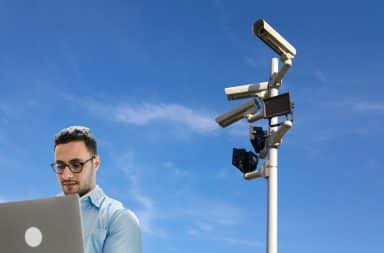They send shockwaves throughout the globe. They rupture international and local communities alike. They have the power to make people angry as well as very sad, and they will stop at nothing to cause damage to infrastructure. We read about them. We see them on television, and we hear about them from our friends who got updated about them on Facebook–which, at this point, may as well just be called MyTragedyUpdate.com. Every day it seems they happen–such paradoxes of foreign commonality.
They are tragedies.
Tragedies have been known to cause widespread anger, despair, and mass confusion. California has earth tragedies. So does Japan. Schools have school tragedies, and yet, these are only just two types of tragedies. There are more out there, and they can happen to men, women, and even children. If you aren’t prepared, you’ll just become another one of the countless persons who has experienced a tragedy.
You can’t escape the inevitability of tragedies, but you can soften their calamitous blows by moving to a place like Fiji.
These tragedies can range from Earth-shattering events to schismatic crises. They can cause global meltdowns and, if they want, can even bring about an entire governmental collapse. Tragedies have been known to wreak havoc on public morale. What’s even more shocking, some have been known to cause disagreements among civil servants.
As you would be inclined to expect, they are everywhere and all around us at the same time. Look up in the sky. Tragedy. Read a book. Tragedy. Read another form of written text and you’ll see. Tragedies. They have occurred since the beginning of time itself and will likely continue to occur until time ceases and becomes the ultimate–I don’t even have to say the word.
You might comprehend tragedy only in terms of Lear or As I Lay Dying, but you’d be sorely incorrect in that assumption. Tragedies are real paradigm shifting events, not merely great works of literature. Some are large in scale whereas many are often smaller. However, some tragedies can be described as medium-sized.
I more than frequently consider, “Am I the only one who’s stockpiled food, shelter, clothing, and spare water?” Am I crazy to think that way? Look at what happens on a page in a newspaper. Let me guess, another one of those violent, shock-inducing tragedies. It certainly has become frighteningly normal how often they occur and how little usually ever gets done to prevent them in the future.
Tragedies typically inspire brief, heated back and fourths on computers, but that does about no amount of good. You can, however, get informed by asking yourself questions like, “Do I know, what a tragedy looks like,” and “What are the signs of a tragedy?” One of those signs is fear. Another is trepidation. Oh, and if you’re wondering if something is a tragedy or not, as a general rule of thumb, it probably is.
As far as physical preparedness goes, here’s a honest-to-goodness tip that not everyone knows about: there are stores that, if you have the correct amount of money, will sell you food. There are also stores that will do the same but with clothes in sizes that should fit you and your loved ones. And you better get them what they need because when the tragedies come, they come for the loved ones.
But that’s only what you can do immediately and locally. You can’t escape the inevitability of tragedies, but you can soften their calamitous blows by moving to a place like Fiji that seemingly only experiences small-scale and–for lack of a better word, minor–tragedies. Tahiti would be another option. Although, moving to an island nation increases the likelihood of ocean tragedies. Pick your poison, I guess.
You all might think I’m a crazy person, on some proverbial soapbox–preaching to a choir that won’t stop singing to hear me. And, hell, I might be.
But who will be laughing the last laugh when the next tragedy comes along and dismantles an entire neighborhood, displaces a family, or incites economic instability? If I’m not struck by some miraculous tragedy before the next tragedy, it’ll be me.


